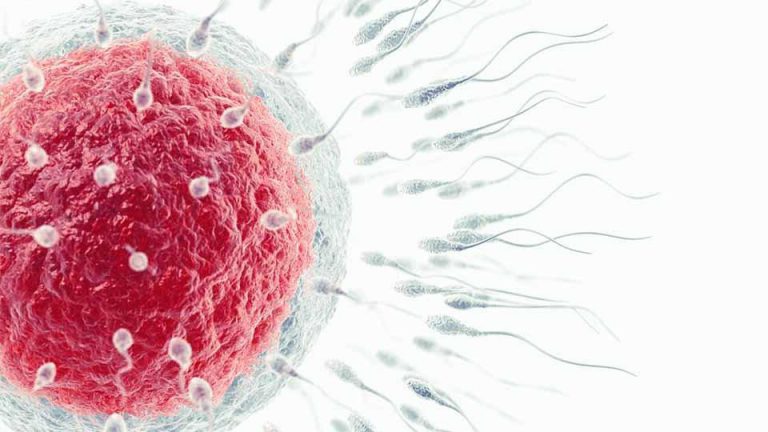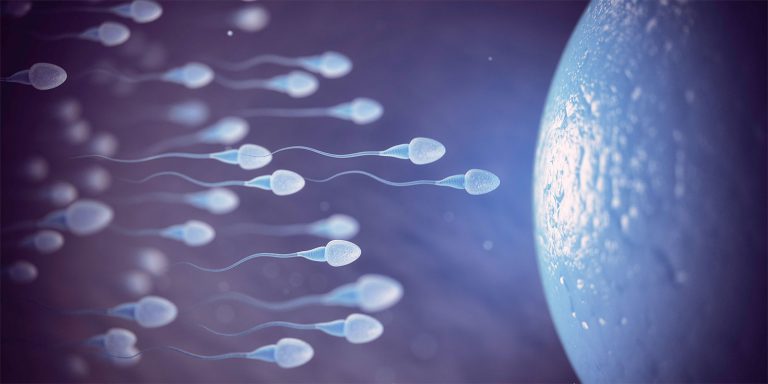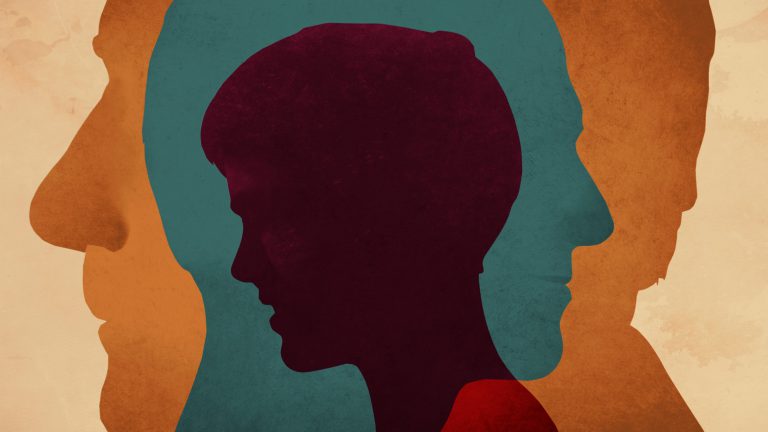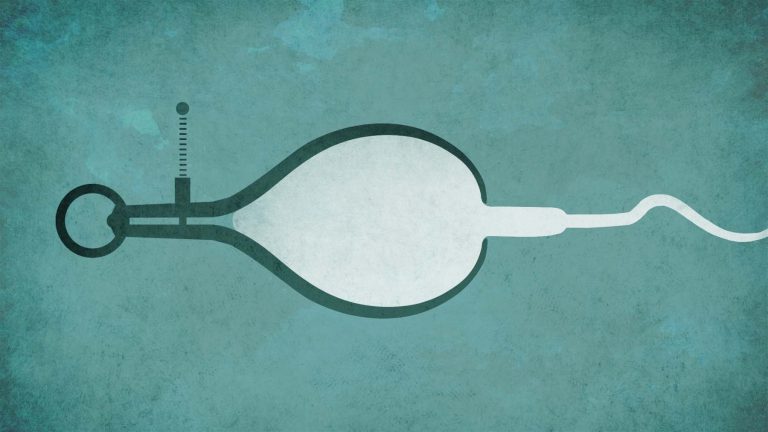Advanced male age negatively impacts fertility in a variety of ways, both directly and indirectly, including longer time to conception, decreased sperm quality, and increased risk for miscarriages and birth defects.
Does a man’s age affect fertility?
The simple answer is yes. As the authors of one study put it in 2011, “The idea that robust fertility for a man will continue well past a woman’s decline in fertility is untrue.” Male age can impact fertility in a number of ways.
First, the older a man is, the longer it takes him to conceive a child. This is due in part to the fact that older men tend to have more chronic health conditions (things like diabetes and high blood pressure can negatively affect fertility), but also because sperm quality decreases with age.
In addition, a man’s age can impact the rate of successful, healthy pregnancies, as well as the fertilization rate. In other words, an older man may still be able to conceive, but the rate of miscarriages and birth defects is higher. In particular, this is often because more of the sperm of an older man can have abnormalities in its DNA, which can lead to miscarriages or birth defects.
Third, there are several indirect factors lowering an older male’s fertility. As men age, they may experience fertility complications as a result of problems with libido (sexual drive) and/or erectile dysfunction. Also, they may see a decline in fertility as a result of common changes to an older male, such as increased weight, which negatively impact fertility. Finally, and most obviously, older males are more likely to have older female partners, who have much more serious fertility problems as a function of age.
When are men most fertile?
It’s hard to say when is the best age (biologically) for men to have a baby. One way in which people try to answer questions about how male age impacts fertility is to look at birth rates for children born to different male age groups.
According to the most recent available data from the CDC, the birth rate is highest for men between 25-29 years old. Although we don’t have data about the health status of the individual men the statistic represents, it is at least true that this is the male age group in the United States which has the most live births, which might correspond to a peak in fertility. The chart below shows the rate of live births per 1000 men for each age group.
What the male age chart below doesn’t show us is how these numbers have changed over time. Although the rate of births for the oldest male age group (over 55) has stayed the same for decades, the rate of births for fathers in their 30s and 40s has gone up substantially since 1980.

At what age does male fertility decrease?
This is a tricky question to answer. The chart above shows men’s likelihood of having a child decreases sharply after 30, but that is more closely related to lifestyle factors than infertility. Advanced paternal age is generally considered “above 40” or “above 45” by most doctors and fertility studies.
One study of men undergoing infertility treatments showed that a man’s chances of conceiving a child fell by 11% every year. However, because these men were already undergoing fertility treatment, these findings might not generalize to the entire population.
One thing that has been studied is that sperm quality decreases with age. This means that sperm parameters like motility (how well a sperm moves) and morphology (how well a sperm is shaped) get worse over time. Studies indicate that sperm motility gets worse by about 0.8% per year, resulting in around a 15% decrease in movement over a 20-year period. Similarly, sperm morphology showed a 4-18% decrease over a 20-year period.
Do men ever stop producing sperm?
Men never stop producing sperm unless some specific disease or damage process takes place, although sperm count might lower as a man ages.
As far as anyone knows, there is no set age after which a man could not theoretically father a child. The oldest known man to father a child is Ramajit Raghav, who set the record in 2012 at the age of 96.
While the quality of the sperm declines with age, the existing data is mixed about age’s impact on overall sperm count. The results of a variety of studies on sperm concentration as a function of age have produced widely different results.
Advanced Sperm Quality Testing. Easy, Mail-in Kit.
ORDER NOWDoes paternal age impact the rate for birth defects?
Advanced paternal age is associated with increased risk for a variety of birth defects and other potential problems. Although it can be hard to separate out male age as an individual risk factor for birth defects with so many other factors at play, we know that some birth defects can be attributed, at least in part, to an older father.
Cleft lip/palate
A Danish study of over a million births concluded that older paternal age is a risk factor for cleft lip and cleft palate, independent of maternal age.
Down Syndrome
A 2003 study evaluated more than 3,400 cases of Down Syndrome and found that, contrary to previous popular opinion, the age of the father was a factor in 50% of the cases. The strongest effect was seen when both partners were older (over 35).
Autism
A 2011 analysis of multiple research studies demonstrated that men over age 50 were twice as likely as a younger man to conceive a child with autism.
Schizophrenia
A similar analysis also done in 2011 showed that men over age 30 were more likely to conceive a child with schizophrenia, with the greatest risk associated with men over age 50. (The same study found that there was also a slightly elevated risk associated with being too young of a father – less than 25.)
Bipolar disorder
A 2008 study found that men over age 55 were 1.37 times as likely as men in their twenties to father a child with bipolar disorder. This effect was more pronounced when looking only at cases of children whose bipolar disorder was early-onset – meaning, older fathers tended to conceive children who developed bipolar disorder earlier in life.
Advanced Sperm Quality Testing. Easy, Mail-in Kit.
ORDER NOWTreatment for Infertility Relating to Male Age
A man’s age does affect his fertility. Men never stop producing sperm for any natural cause and there is no max age that a man can conceive. However, advanced male age has the following negative impacts on fertility:
– longer time to conception
– decreased sperm quality
– increase in abnormalities in sperm DNA
– increased risk for miscarriages and birth defects
For treatment of male infertility, you’ll want to see a specialist. This is typically a urologist or andrologist and if you need a recommendation, get in touch with us.







